Abstract
Prior research with token reinforcement in the psychiatric population has been directed at work adjustment, more than at major symptomatic behaviors. The purpose of the present research, on the other hand, was to investigate the effects of feedback and token reinforcement on the modification of delusional verbal behavior in chronic psychotics. Six male and four female paranoid schizophrenic patients participated in the study. The results indicated that the effects of feedback were effective about half the time in reducing percentage delusional talk, but in at least three cases produced adverse reactions. Token reinforcement, however, showed more consistency and reduced the percentage of delusional verbal behavior in seven of the nine subjects exposed to this procedure. The effects of both feedback and token reinforcement were quite specific to the environment in which they were applied and showed little generalization to other situations. It would appear that using token reinforcement can reduce the percentage delusional speech of chronic paranoid schizophrenics.
Full text
PDF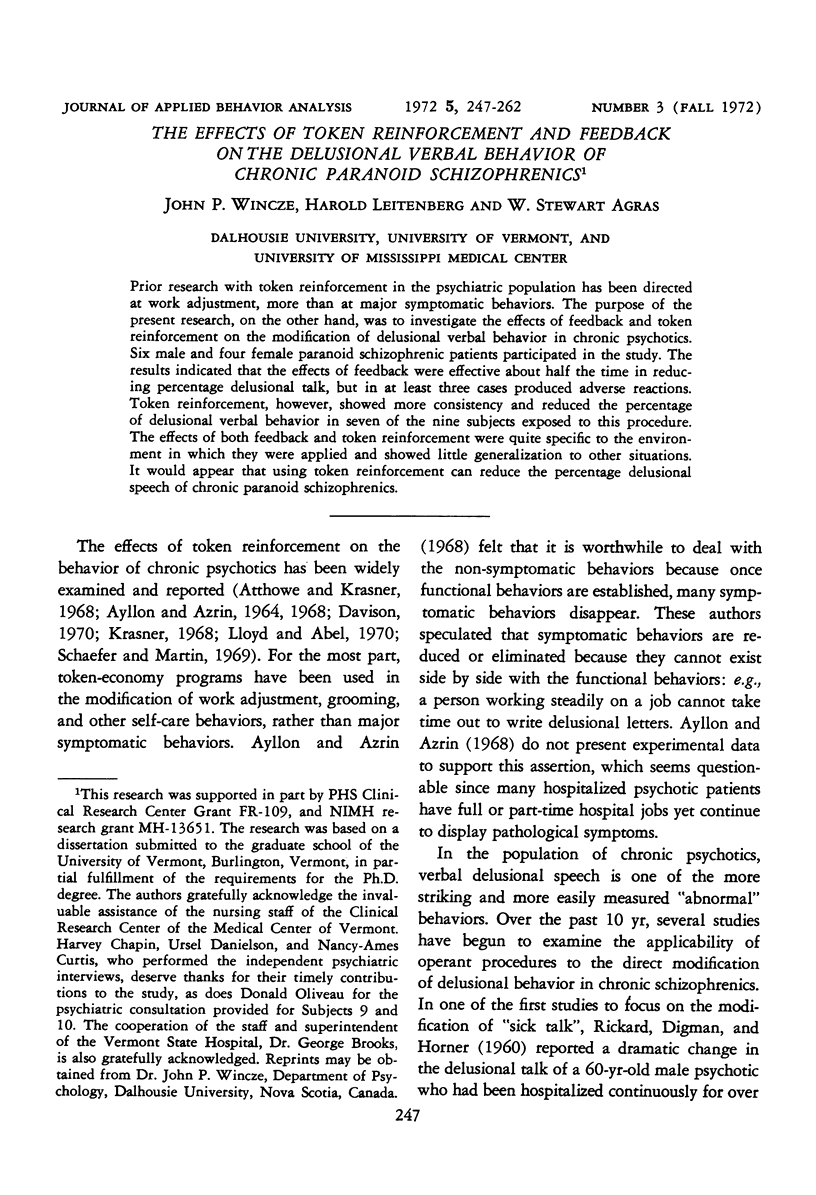
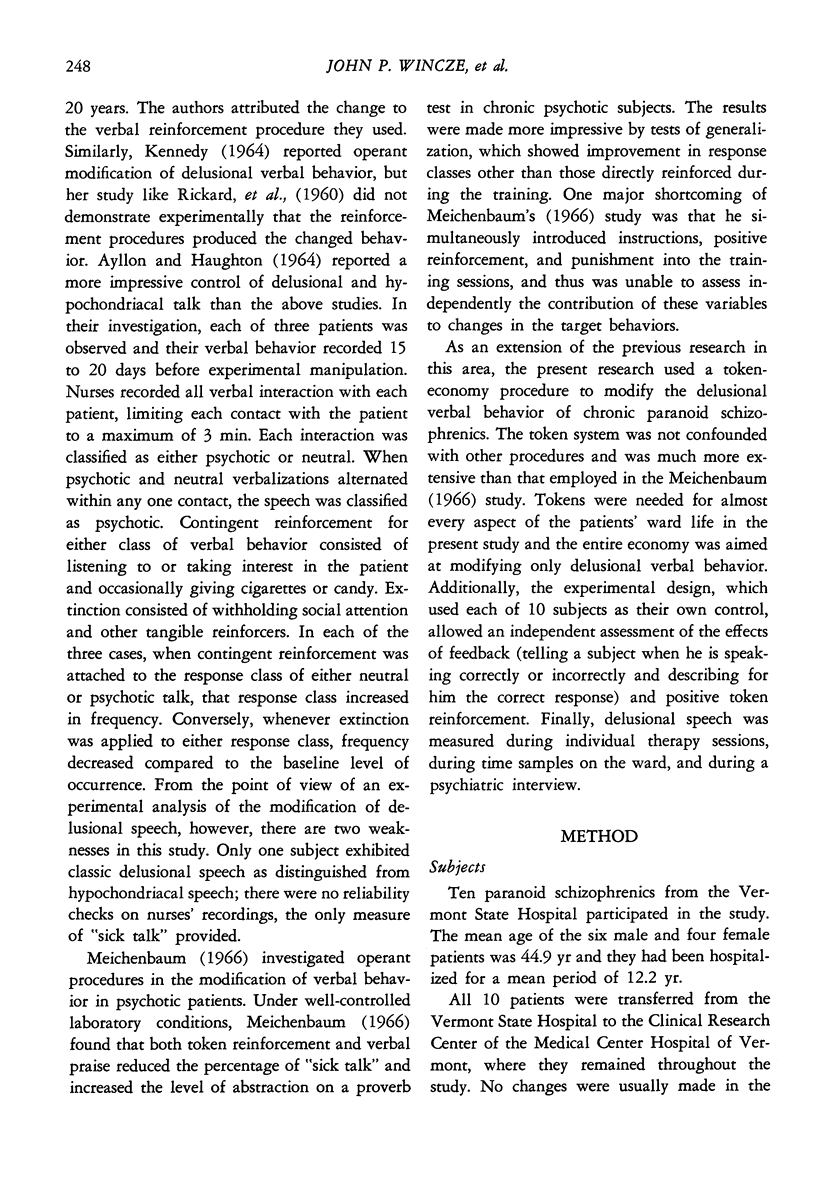
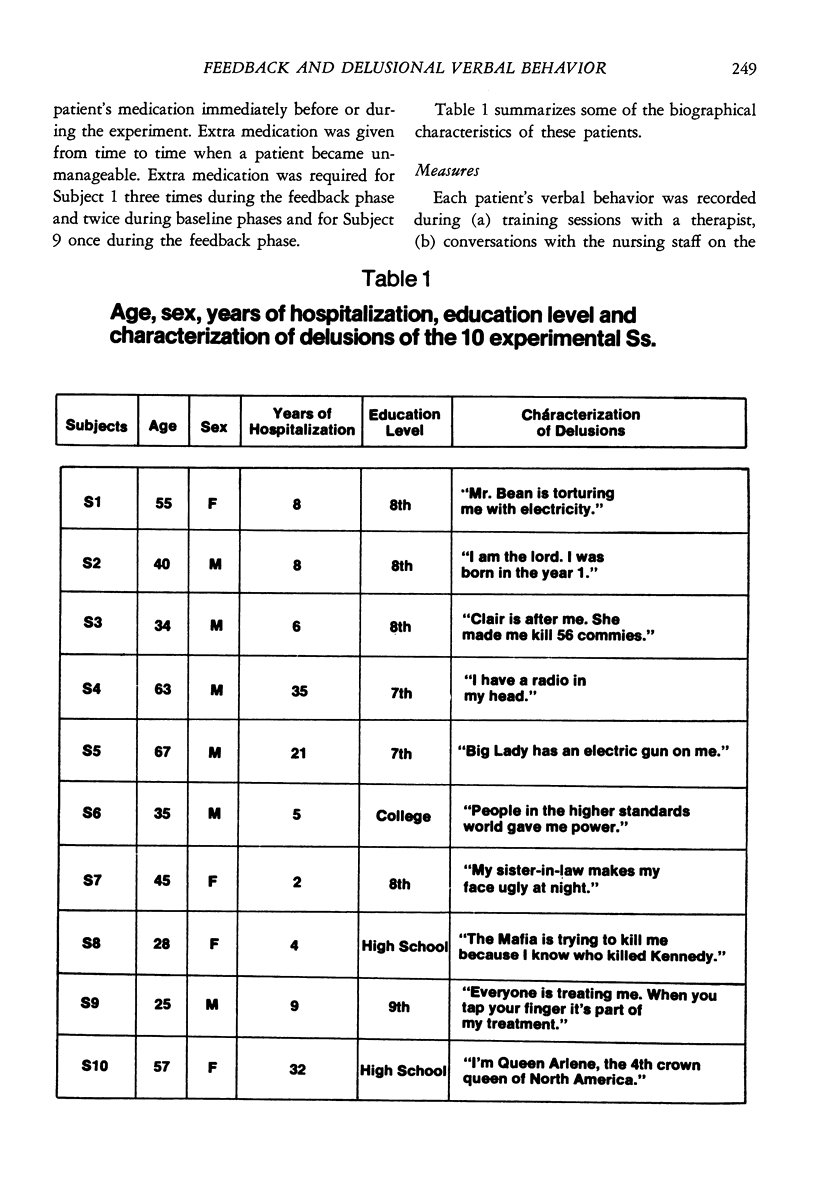
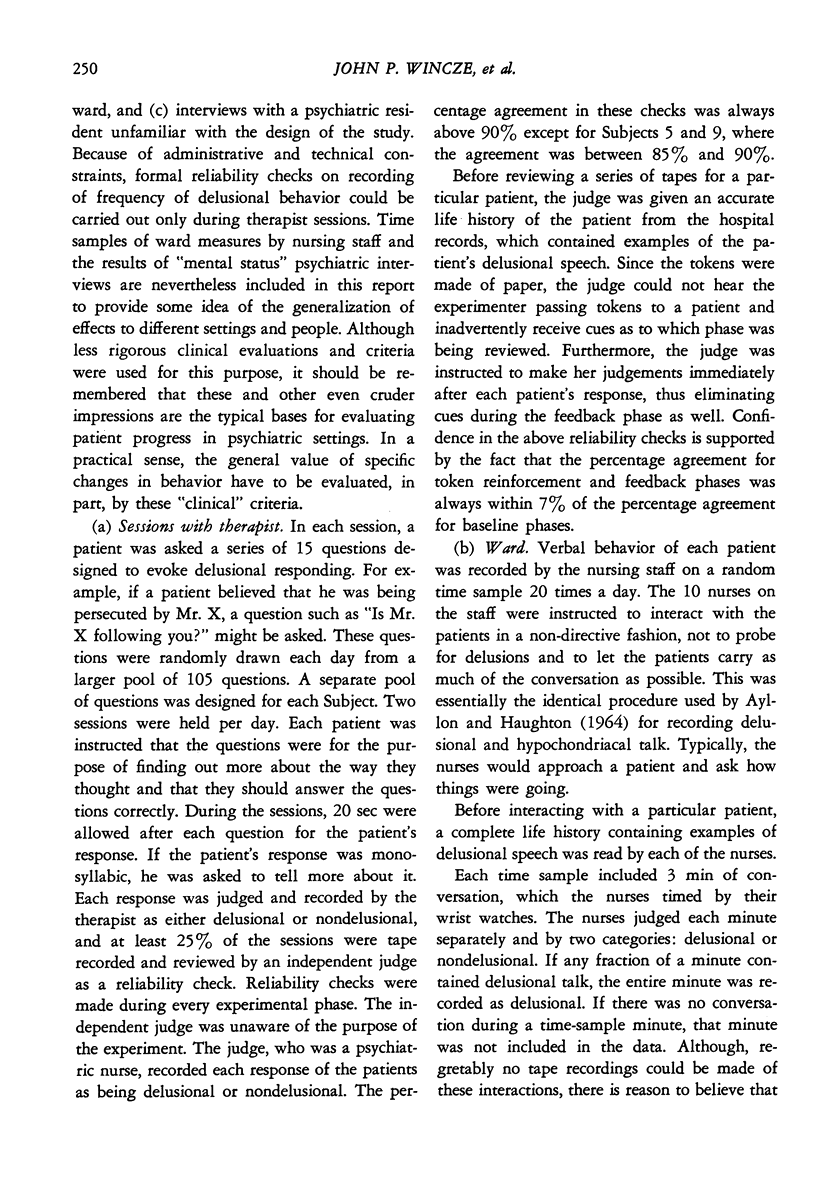
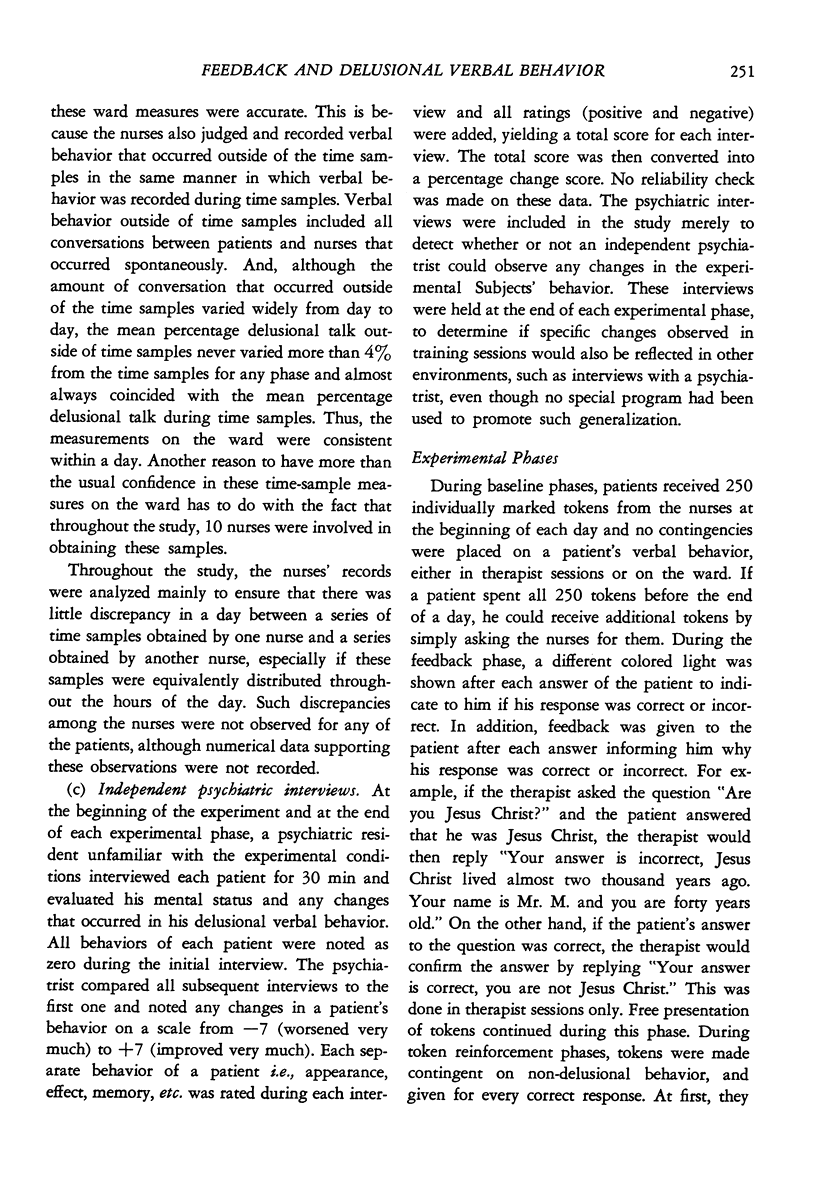
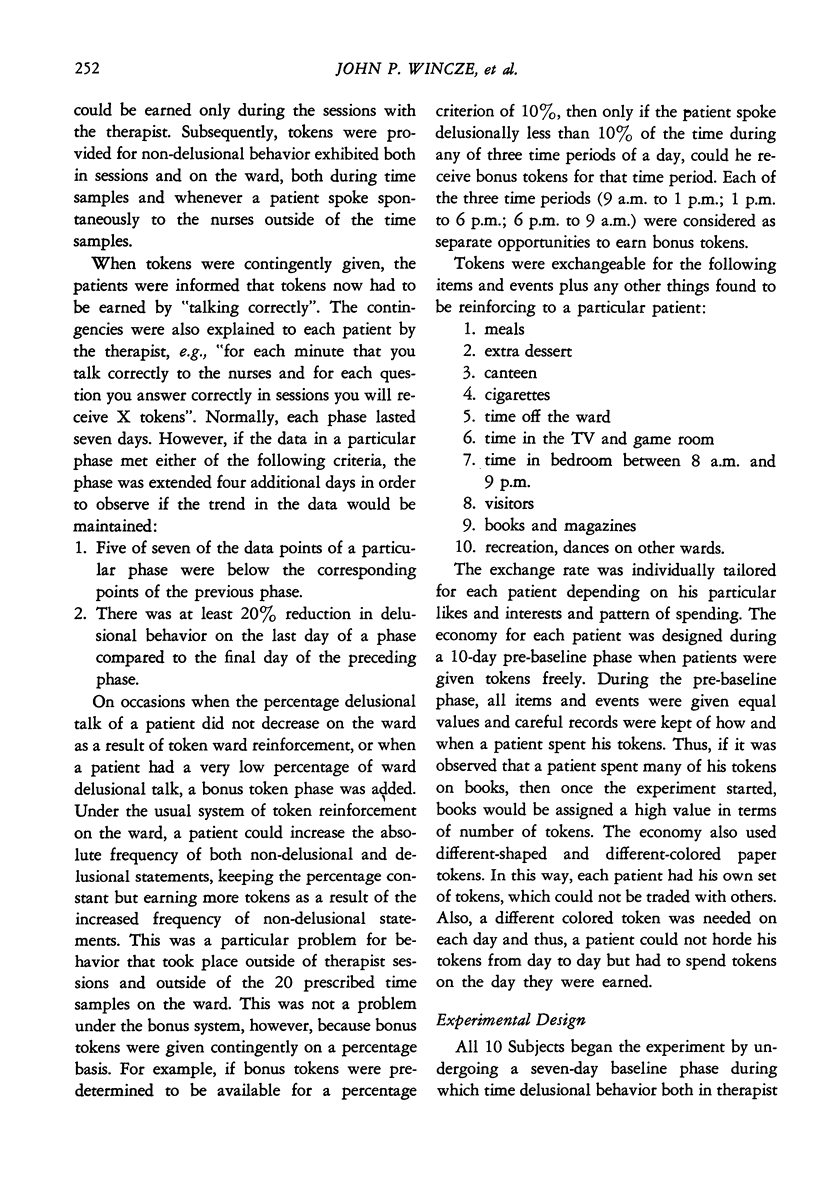
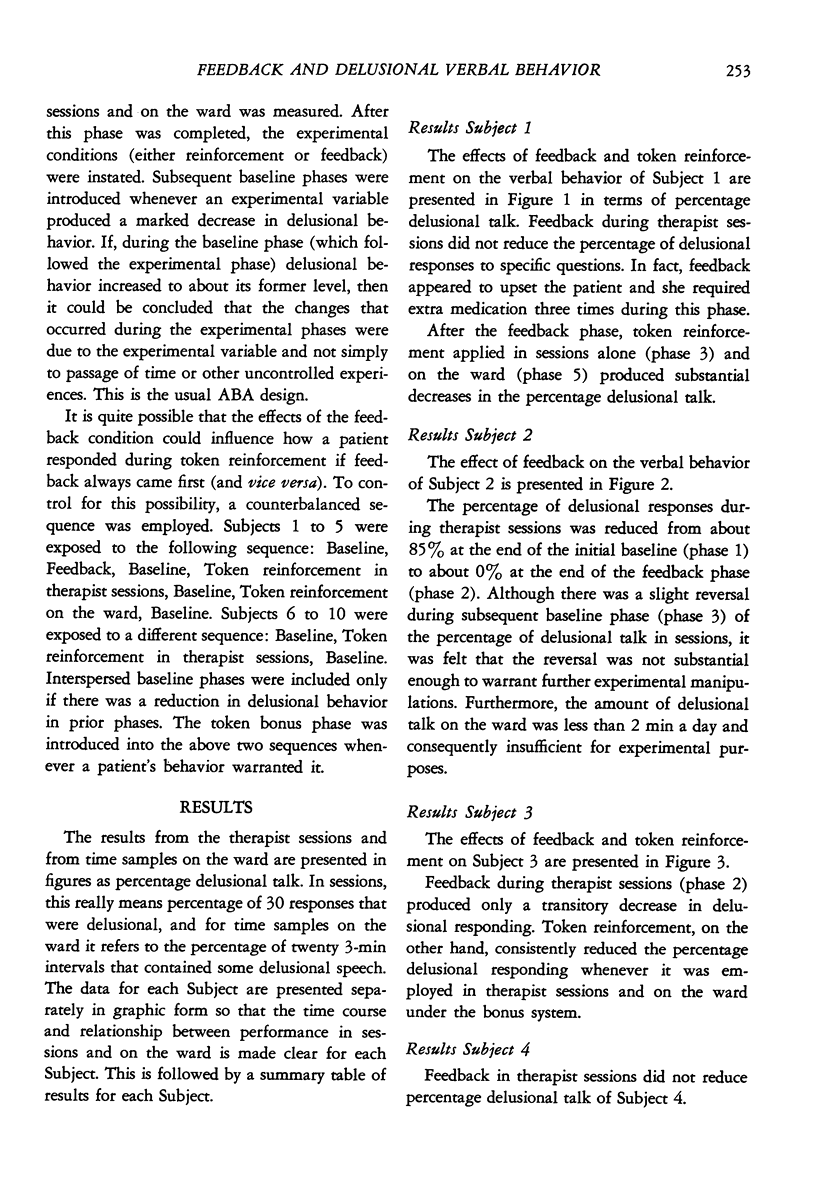
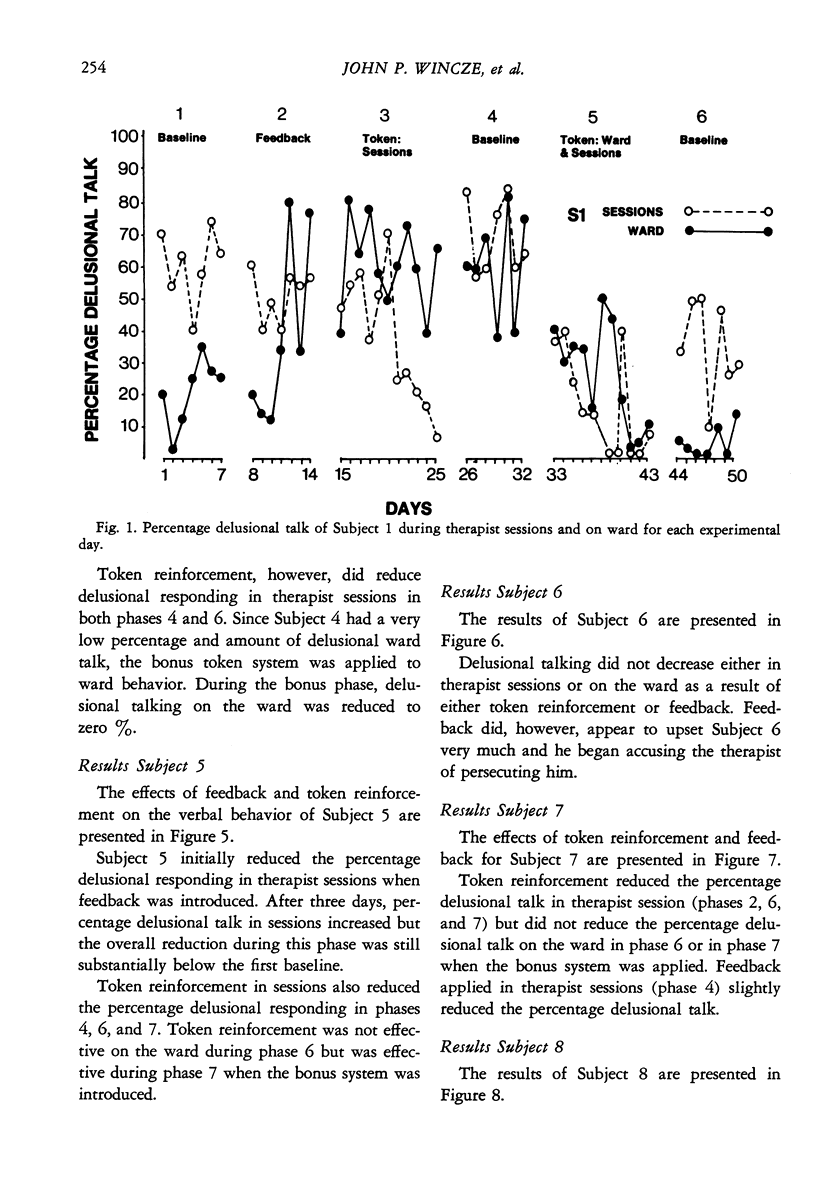
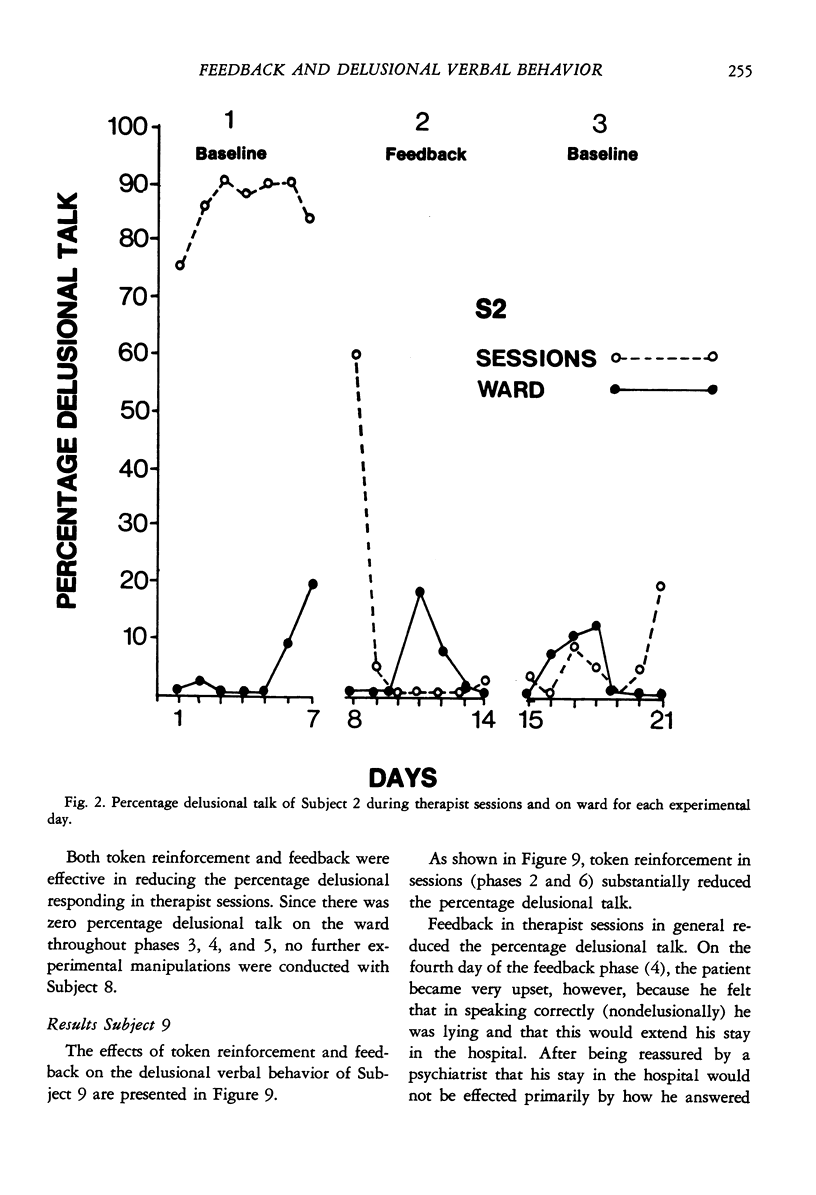
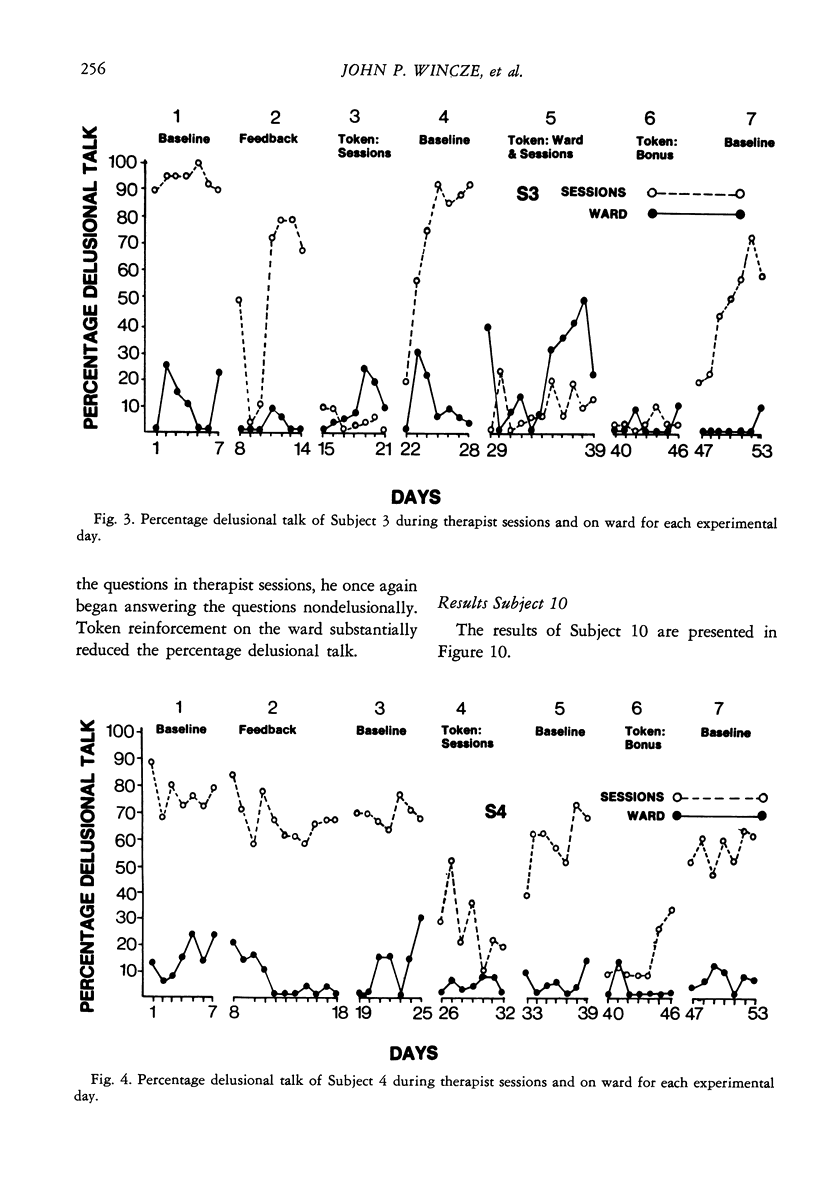
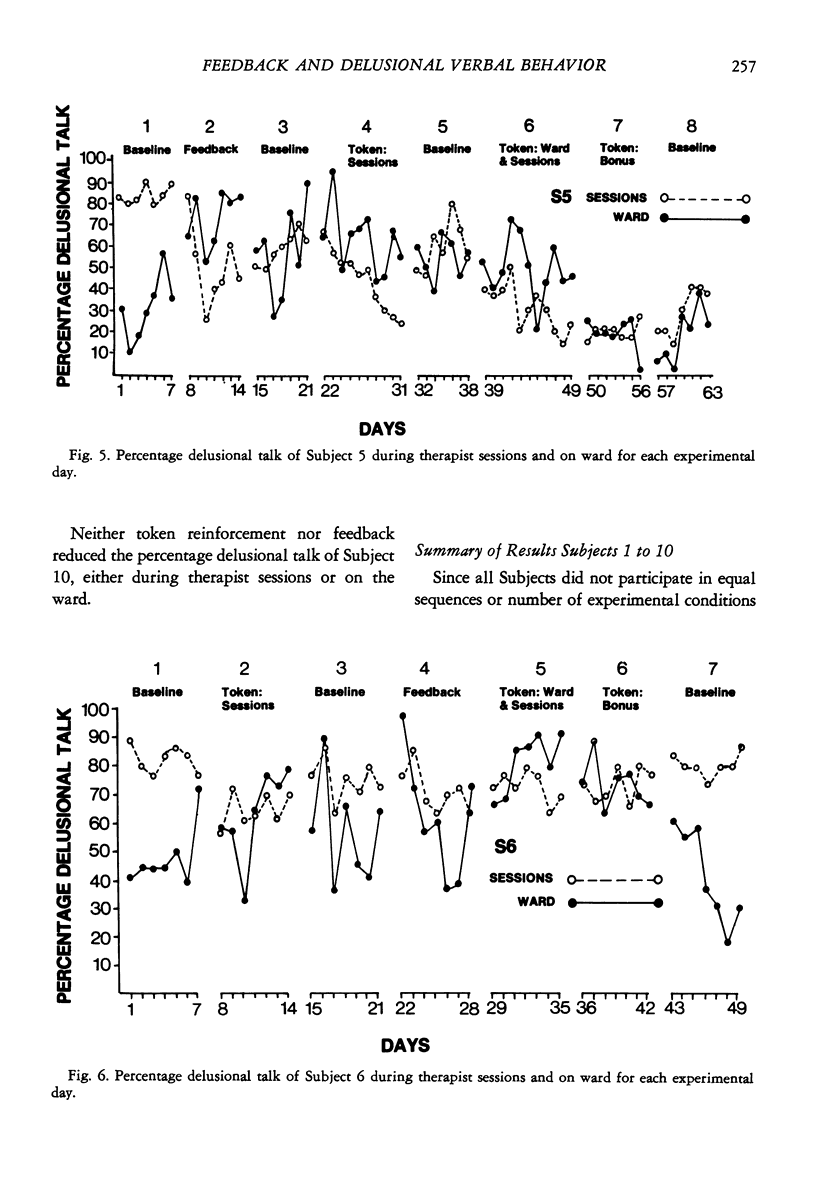
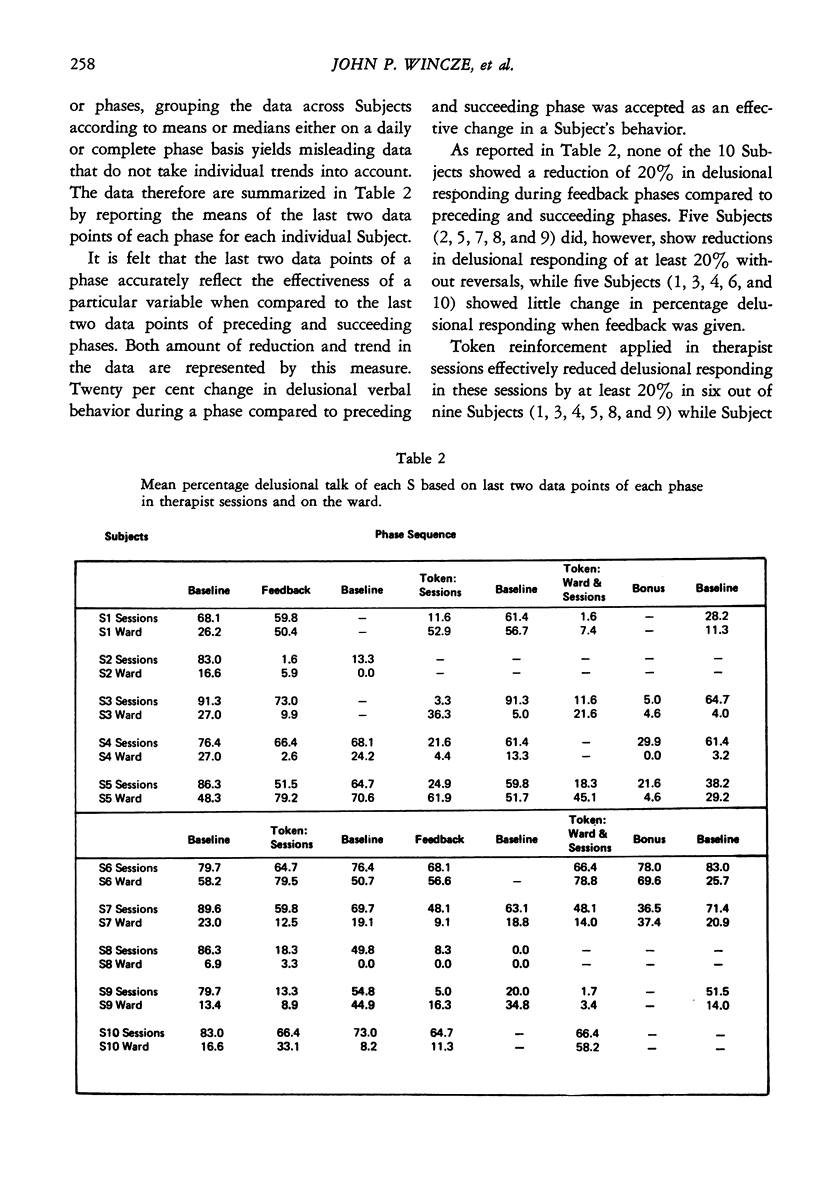
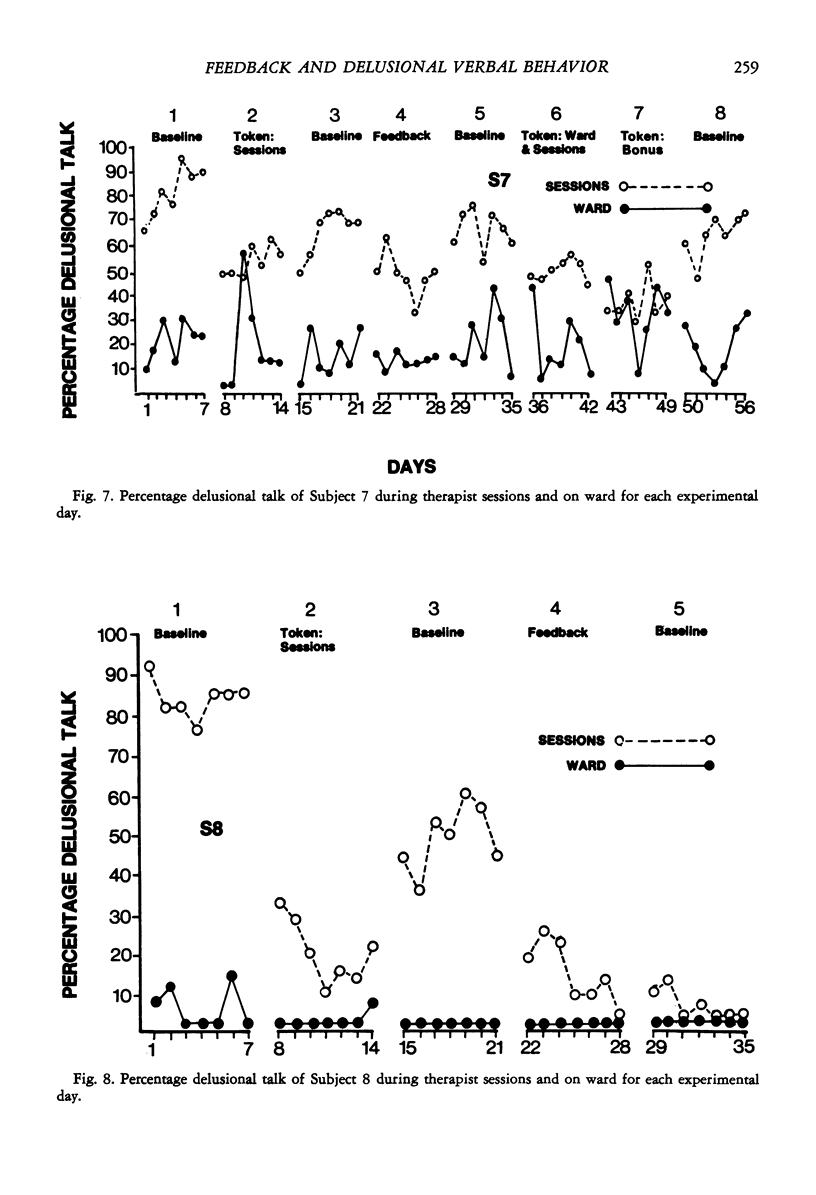
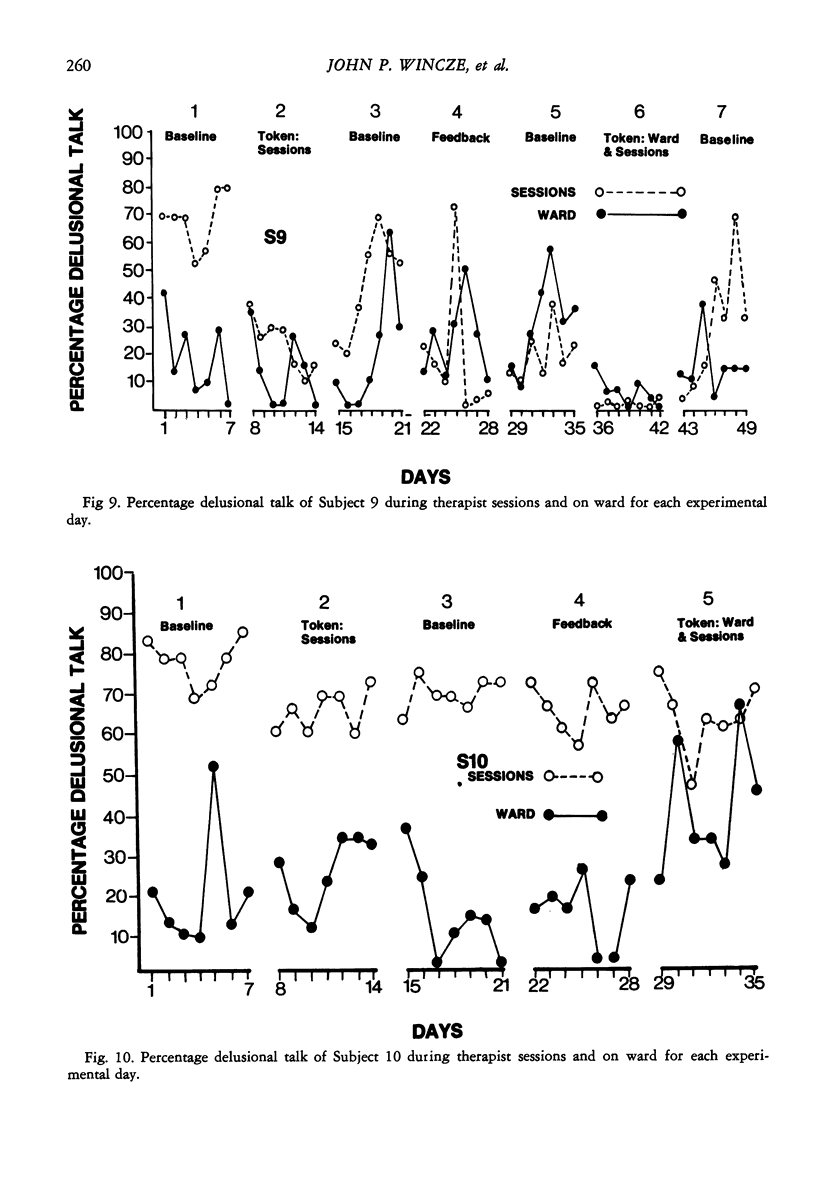
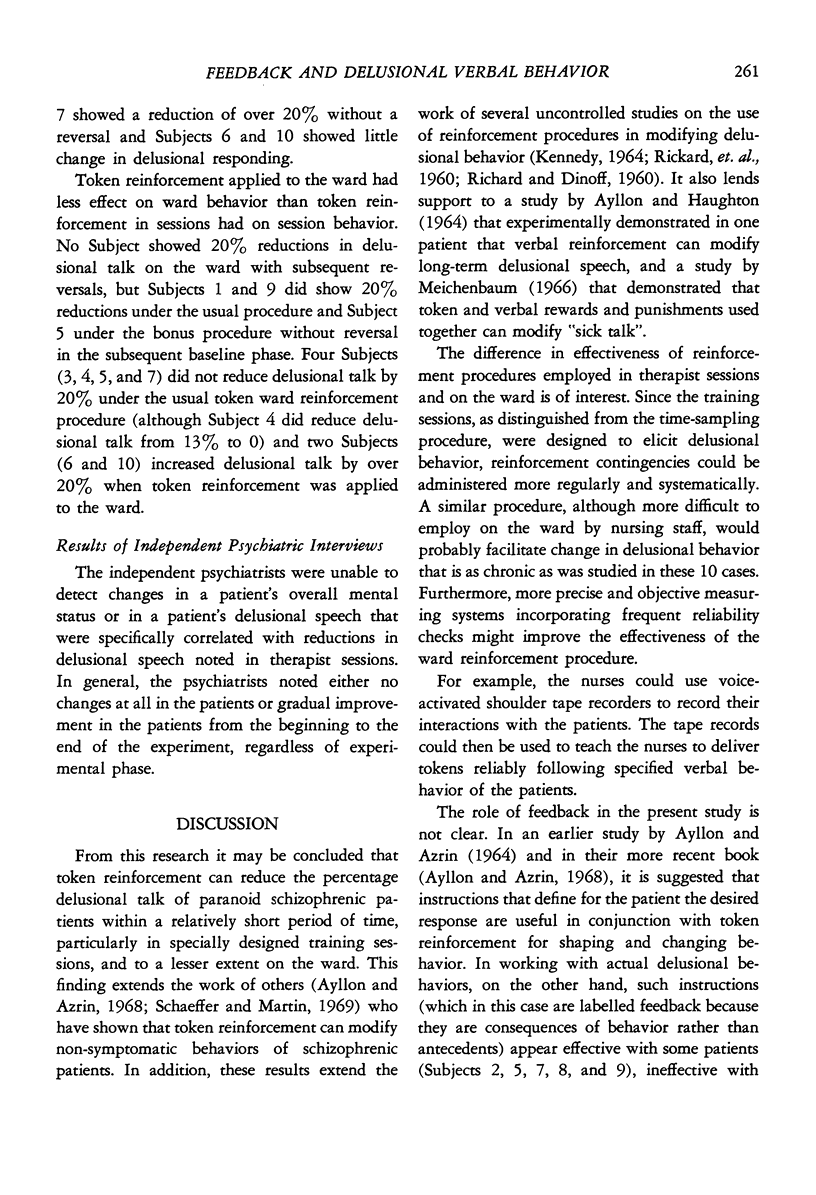
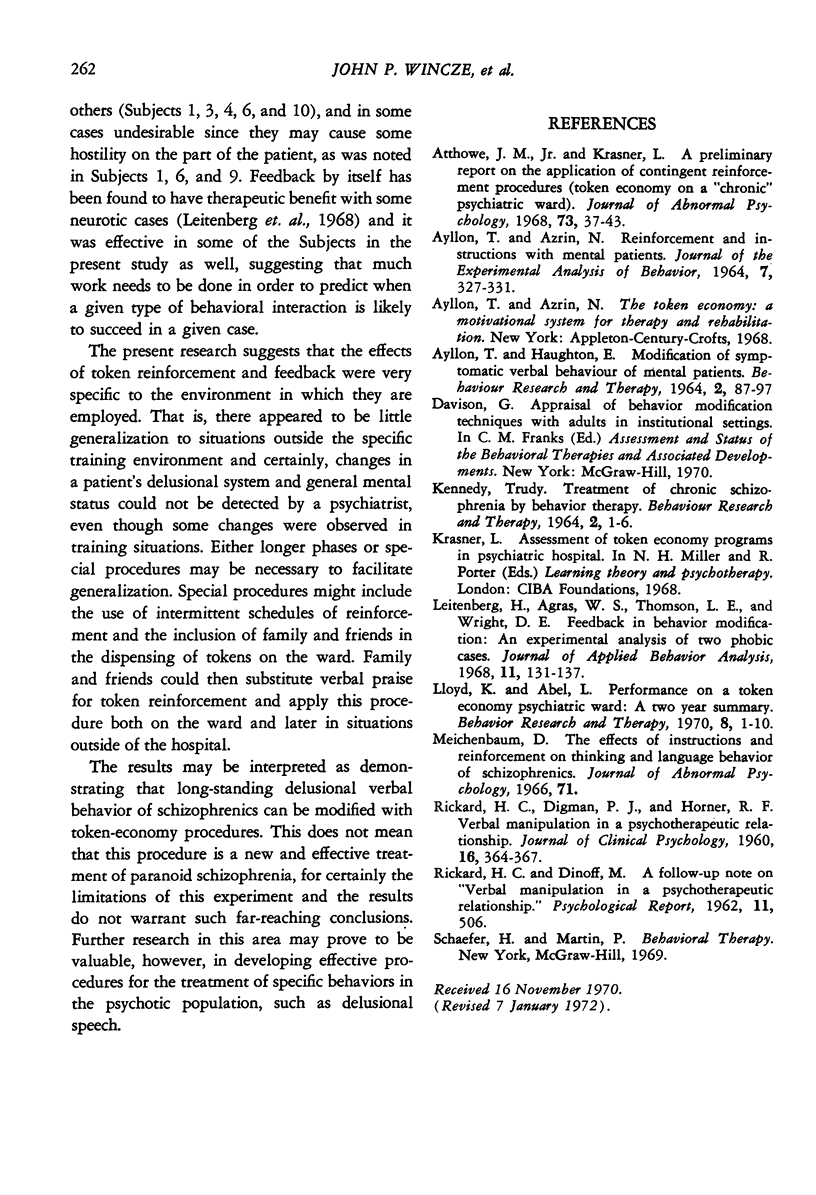
Selected References
These references are in PubMed. This may not be the complete list of references from this article.
- AYLLON T., AZRIN N. H. REINFORCEMENT AND INSTRUCTIONS WITH MENTAL PATIENTS. J Exp Anal Behav. 1964 Jul;7:327–331. doi: 10.1901/jeab.1964.7-327. [DOI] [PMC free article] [PubMed] [Google Scholar]
- AYLLON T., HAUGHTON E. MODIFICATION OF SYMPTOMATIC VERBAL BEHAVIOUR OF MENTAL PATIENTS. Behav Res Ther. 1964 Sep;2:87–97. doi: 10.1016/0005-7967(64)90001-4. [DOI] [PubMed] [Google Scholar]
- Atthowe J. M., Jr, Krasner L. Preliminary report on the application of contingent reinforcement procedures (token economy) on a "chronic" psychiatric ward. J Abnorm Psychol. 1968 Feb;73(1):37–43. doi: 10.1037/h0025439. [DOI] [PubMed] [Google Scholar]
- KENNEDY T. TREATMENT OF CHRONIC SCHIZOPHRENIA BY BEHAVIOUR THERAPY: CASE REPORTS. Behav Res Ther. 1964 May;2:1–6. doi: 10.1016/0005-7967(64)90047-6. [DOI] [PubMed] [Google Scholar]
- Leitenberg H., Agras W. S., Thompson L. E., Wright D. E. Feedback in behavior modification: an experimental analysis in two phobic cases. J Appl Behav Anal. 1968 Summer;1(2):131–137. doi: 10.1901/jaba.1968.1-131. [DOI] [PMC free article] [PubMed] [Google Scholar]
- Lloyd K. E., Abel L. Performance on a token economy psychiatric ward: a two year summary. Behav Res Ther. 1970 Feb;8(1):1–9. doi: 10.1016/0005-7967(70)90027-6. [DOI] [PubMed] [Google Scholar]
- RICKARD H. C., DIGNAM P. J., HORNER R. F. Verbal manipulation in a psychotherapeutic relationship. J Clin Psychol. 1960 Oct;16:364–367. doi: 10.1002/1097-4679(196010)16:4<364::aid-jclp2270160404>3.0.co;2-2. [DOI] [PubMed] [Google Scholar]


